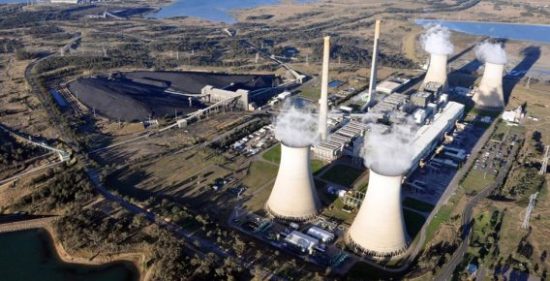AEMO confirms that AGL’s plan for Liddell will eliminate energy shortfall

In an interview with 2GB on Monday, Chairman of the Backbench Environment and Energy Committee and spokeperson for the Monash Forum, Craig Kelly, said “There is a clear argument under our existing competition law that AGL would be engaging in a misuse of their market power by closing Liddell down and not offering it to a competitor.”
On his Facebook page, Kelly adds “As the ACCC have confirmed, the closure of Liddell will harm consumers and electric prices will rise.”
To make these statements, Kelly either has the hide of a rhinoceros or the memory of a goldfish.
Up until 2014, the Liddell power station was owned by the NSW government. When the Liberals chose to give it to AGL effectively for free as part of a $1.5 billion package deal for Liddell and Bayswater (and a guarantee of coal at ridiculously low prices), the ACCC blocked the sale because it “would substantially lessen competition by strengthening the oligopoly of AGL, Origin Energy and Energy Australia.”
The NSW government appealed the decision which was overturned by the Australian Competition Tribunal who said the benefits of the sale to the NSW budget offset the risk of reduced competition.
Furthermore, in September last year, Rod Simms, the head of the ACCC, specifically quashed accusations from government MPs that AGL is misusing its market power by refusing to sell the Liddell power station to a rival saying it was not a breach of competition laws.
Not only is AGL currently making a significant profit from Liddell, they presented the government with their plans to meet future energy demand which included a mix of gas, renewables, storage and demand response, as well as an already promised upgrade of Bayswater.
In March 2018, the Australian Energy Market Operator (AEMO) sent Energy Minister Josh Frydenberg their assessment of whether AGL’s plan would meet our future energy needs.
AEMO’s analysis shows that an additional 850 MWs of resource capability are required to ensure reliability in NSW following the closure of Liddell. If all three stages of the AGL plan are completed, the resource gap will be eliminated.
In its current state, Liddell is more likely to be the cause of a power emergency because of what AEMO describes as the potential for ageing coal generators to fail in the heat – during the 2016-17 summer heatwave, Liddell was missing 1,000MW of its capacity due to problems with boiler tube leaks.
Estimates of how much it would cost a buyer to upgrade the decrepit Liddell to keep it running for another 5 years vary between $500 million and a $1 billion. On top of the refurbishments, when eventually closed, there are also the rehabilitation costs – AGL recently estimated these at a total of $898 million, for both Liddell and Bayswater.
Why would AGL sell an asset that is making a significant profit with a favourable contract for the next four years and risk losing customers to a competitor before they have had a chance to develop their alternatives?
Why would a buyer purchase an unreliable plant that requires major repair for a short life extension which will be followed by significant clean-up costs?
As AGL already own the site and have said they can use some of the existing infrastructure, possibly even existing quarries for pumped hydro storage, their proposal should be much cheaper meaning less cost passed on to the consumer.
The government says it wants affordability, reliability and, as an afterthought these days, lower emissions – then why this ridiculous posturing about Liddell?
Encourage AGL to get on with their plans for their own business and start concentrating on some sort of coherent energy plan that businesses can rely on. They all know that there must be a low carbon future but are unwilling to invest due to the hopeless inability of the government to settle on a plan that acknowledges that.
Like what we do at The AIMN?
You’ll like it even more knowing that your donation will help us to keep up the good fight.
Chuck in a few bucks and see just how far it goes!
Your contribution to help with the running costs of this site will be gratefully accepted.
You can donate through PayPal or credit card via the button below, or donate via bank transfer: BSB: 062500; A/c no: 10495969